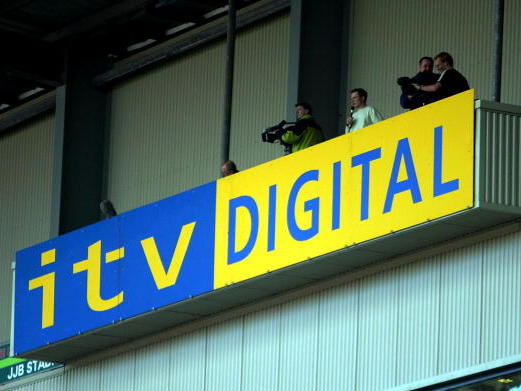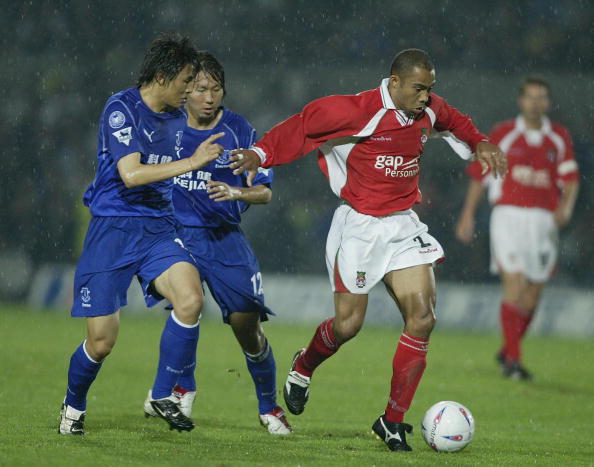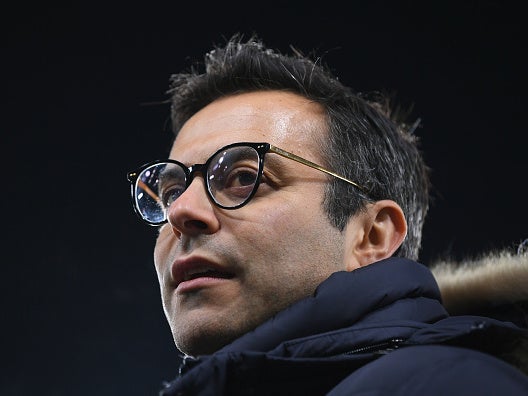Remember ITV Digital? EFL clubs wishing for a breakaway would do well not to forget
EFL agreed a new TV rights deal worth £595m with Sky Sports yesterday

“It hit quite quickly and before you knew it we were going for months without getting paid – I had friends in football taking part-time jobs, I know talented footballers who were lost to the game completely.”
The collapse of ITV Digital may have happened 16 years ago but former Manchester City midfielder, Jim Whitley, can still recall the financial tsunami which engulfed the Football League after a broadcast deal that should never have been signed unravelled at indecent haste.
Whitley was at then Division Two Wrexham at the time – a club that just months after the broadcaster went into liquidation on 30 April 2002, pulled the plug on its academy in a desperate bid for survival. Within 18 months, Wrexham would be placed in administration and become the first club in the Football League to be fined 10 points for doing so. They were, though, just one of 12 clubs to enter administration in the immediate aftermath of ITV Digital’s demise.
The Football League’s future has been the focus of a great deal of attention again recently, mainly as a result of the threat of a breakaway by Championship clubs who believe they are deserving of greater sums than the ones offered in a Sky deal that was ratified yesterday.

If the ITV Digital experience tells us anything, however, it’s that clubs below the Premier League should be careful what they wish for.
ONDigital, as it was known when it first signed an eye-watering £315m broadcast deal with the Football League in 2001, had entered the market with a view to shaking up the cosy little world that had developed between the English game and Sky, which had begun broadcasting the Premier League in 1992.
“Sky is for sad people who live in lofts,” said the company’s then chief executive, Stephen Grabiner in 1998.
When the eye-wateringly huge £315m deal was struck – handing the satellite channel the rights to screen 88 live, pay-per-view matches from the First, Second and Third Divisions for three years from the start of the 2001/02 season – it was hailed as a game changer.
Barry Fry, the then Peterbrough manager was just one of a succession of high profile Football League figures to support that view.
“Everybody wants to see Northampton v Peterborough or Cambridge v Peterborough,” he said. “It’s like the Manchester derby. They hate each other. Our revenue will double but I just hope the players will spend it wisely and not splash out on huge wages and signing-on fees.”
With the benefit of hindsight, most clubs will wish they had heeded Fry’s words.
Within months, though, clubs like York City were reportedly spending 180% of their turnover on wages. According to the Deloitte & Touche Annual Report of Football Finances, which was published in June 2002, Fulham, Wimbledon and Wigan were spending even more.
“Is it any wonder?” says Whitley. “You can’t give football clubs money and expect them not to spend it – it’s like giving a kid sweets on a Monday and telling them they have to save them until the weekend. There were some big contracts going around, there was some big, big money. You would hear about some contracts and think ‘that’s just crazy, absolutely bonkers, how is this being allowed to happen?”
Happen it did, though, and before the company’s financial problems surfaced, the Football League was allowing itself more than the odd self-congratulatory pat on the back at delivering the kind of wealth that had previously seemed beyond its 72 members. By the time 2002 had dawned, however, the deal was already unravelling.
“The ITV Digital deal never made sense,” says Rob Wilson, football finance expert at Sheffield Hallam University. “The EFL are protecting the clubs under their control with the deal they’ve just signed with Sky – you certainly couldn’t say that about the ITV Digital deal. They paid well over the odds, that was completely obvious from the off. It put so many clubs at risk.
“There is considerably less demand for live coverage the lower down the leagues you go and ITV Digital proved that beyond all doubt.”

It wasn’t only Football League matches that were failing to lure subscribers. A Worthington Cup semi-final between Sheffield Wednesday and Blackburn in January 2001, attracted official viewing figures of zero when it was screened on ITV Digital.
By February 2002, the company was in dire straits and found itself frantically attempting to renegotiate a deal which had left it on the brink. And the mood of the 72 league clubs had darkened considerably.
“You had clubs who couldn’t cope with the shortfall as soon as it hit,” says Whitley. “It wasn’t a nice time to be in football. It was horrible. It’s the reason I didn’t go into management when I retired – I couldn’t have faced telling people that they didn’t have a job anymore.
“A lot of the players who didn’t get released were being offered contracts on the sort of money that made it very, very difficult to get by. A lot of clubs and a lot of individuals involved with those clubs never recovered.
“When I hear talk of clubs looking to form breakaway leagues I really do scratch my head. What on earth are they thinking? It’s not just about those clubs who think they should be getting more money, it’s the rest of the clubs in the league. You have to learn from the lessons of the past.”
Join our commenting forum
Join thought-provoking conversations, follow other Independent readers and see their replies
Comments